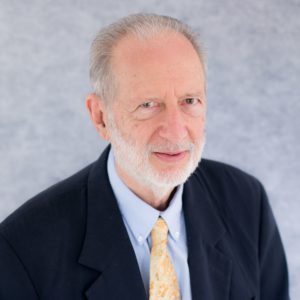2017 Distinguished Lecture Series: Carl Mitcham
Engineering Ethics: Thinking Small and Big
 At its origins as a socially recognized profession in the late 1700s, engineering simply incorporated a theory of the good advanced by Enlightenment philosophy. Civil (as opposed to military) engineering was defined as “the art of directing the great sources of power in nature for the use and convenience of man.” Over the next three centuries the abstract notion of “use and convenience” underwent a series of interpretations that began quite narrowly as company loyalty but progressively enlarged to emphasize obligations to protect public safety, health, welfare and more.
At its origins as a socially recognized profession in the late 1700s, engineering simply incorporated a theory of the good advanced by Enlightenment philosophy. Civil (as opposed to military) engineering was defined as “the art of directing the great sources of power in nature for the use and convenience of man.” Over the next three centuries the abstract notion of “use and convenience” underwent a series of interpretations that began quite narrowly as company loyalty but progressively enlarged to emphasize obligations to protect public safety, health, welfare and more.
In a world now being transformed into an artifact of human construction and design, engineers — along with all non-engineers whose lives are ineluctably changed by living in our engineered world — are called upon to think of engineering ethics as more than some professional code of conduct.
The period 800 to 200 B.C. has been described as an Axial Age in which, independently of each other, thinkers as diverse as Shakyamuni Buddha in India, Laozi and Confucius in China, the Hebrew prophets in Israel and Socrates in Greece introduced into human affairs a new kind of question: What is the proper way to be human?
Today we are living in a New Axial Age in which we must ask: What is the proper way to engineer the world? What is the meaning of the engineering way of life, not just for engineers but for everyone who directly or indirectly contributes to and is influenced by the engineering way of being in the world?
 Carl Mitcham holds appointments as Professor of Liberal Arts and International Studies at Colorado School of Mines and as International Distinguished Professor of Philosophy of Technology at Renmin University of China.
Carl Mitcham holds appointments as Professor of Liberal Arts and International Studies at Colorado School of Mines and as International Distinguished Professor of Philosophy of Technology at Renmin University of China.
His publications include Thinking through Technology: The Path between Engineering and Philosophy (1994), Encyclopedia of Science, Technology, and Ethics (4 vols., 2005; second edition 2015), Oxford Handbook of Interdisciplinarity (2010, with Robert Frodeman and Julie Thompson Klein), and Ethics and Science: An Introduction (2012, with Adam Briggle). Philosophy of Engineering, East and West is forthcoming.
Additionally he has served as a member of the Committee on Scientific Freedom and Responsibility of the American Association for the Advancement of Science (1994-2000) and on expert study groups for the European Commission (2009 and 2012). Awards include the World Technology Award for Ethics (2006) and a doctor honoris causa from the Universidad Internacional de Valencia, Spain (2010). He holds a BA and MA in philosophy from the University of Colorado and the PhD in philosophy from Fordham University.